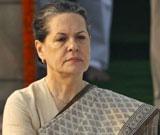
New Delhi, September 19: The UPA government will explain the background behind its decisions to the Trinamool Congress which has decided to withdraw support to the coalition on the issue of diesel price hike and FDI in retail.
Sources said after a meeting of the top Congress leadership at the residence of Prime Minister Manmohan Singh that the government would explain to Trinamool Congress ministers the circumstances under which these decisions were taken.
There was no indication as to what the government would do on the demands of Trinamool Congress chief Mamata Banerjee who has sought the total withdrawal of FDI in retail, the slashing of Rs 5 hike in diesel price by Rs 4 or Rs 3 and raise the cap on LPG cylinders from 6 to 12.
When asked about the Trinamool demands for roll back of the decisions, the sources merely said, "ask the petroleum minister".
Six ministers of Trinamool Congress are slated to resign Friday afternoon if the government does not roll back its decisions.
The sources recalled that the government sought to reach out to Mamata Banerjee four days ago to explain the background behind the decisions it took.
The Prime Minister tried to speak to Banerjee twice over phone but she did not return the calls. Then Railway Minister Mukul Roy was contacted, the sources said, adding Roy acknowledged that Banerjee had received the message.
However, Roy said today that nobody from the Government has spoken to him after Mamata Banerjee decided on withdrawing support last night.





Comments
Add new comment